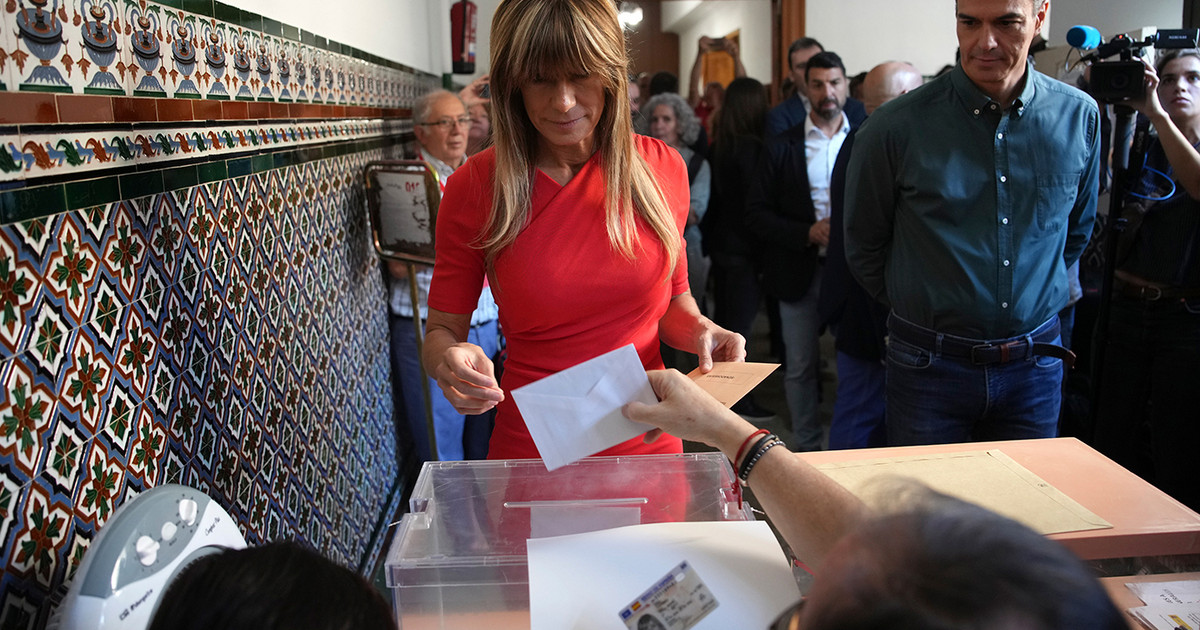When on January 20 the Joe Biden he was sworn in as the 46th President of the United States, many of whom came out with relief, after four turbulent years with Donald Trump at the helm. Of course, there were those who waited from the beginning for the new president… with a rifle in the corner, when the day came for the account of his first 100 days in the presidency – a journalistic and political “institution” almost as old as the American Republic.
With the United States being the worst-hit country since the Covid-19 pandemic, with nearly 560,000 deaths and more than 31 million cases, Biden’s work was from the start to boost American confidence in the (already afflicted Trump administration). ) US health system. When he was sworn in as president, Biden set an ambitious goal: to have 100 million vaccinations in the first 100 days of his presidency. And, miraculously, that goal was achieved on March 18, the 58th day of his tenure in the White House.
“It was not easy at all, but we did it,” the White House president said a few days ago, describing a huge national effort to accelerate vaccination rates in the United States dramatically for the common good. At present, at the beginning of April, almost 2.5 million doses are given daily on average, compared to less than one million on January 20. “It’s time for optimism, but not for relaxation. You must all do your duty. “Wash your hands, keep your distance, wear a mask as recommended by the Centers for Disease Control and Prevention (CDC) and get vaccinated when it’s your turn,” Biden said.
“Bazooka package” 3 trillion. dollars for infrastructure and welfare

The US president then turned his attention to the state, announcing a few days ago an ambitious plan of almost 3 trillion. to rebuild infrastructure, support the social safety net for vulnerable groups, tackle climate change, reform health, boost jobs and reduce economic inequalities.
Asked last week why he was prioritizing the package over other initiatives, Biden said “presidents need to know the right time to act”, adding that he wanted to “redirect funds to neglected regions”. and forgotten people “.
The Biden initiative refers to Democratic leaders in the 1960s, such as John F. Kennedy with his public investment, or Dwight D. Eisenhower in 1956, who sought to build a network of interstate highways.
“I’m impressed with the scale and the structure,” said Simon Johnson, a professor of economics at MIT. “They seem to have adopted the idea that productivity and growth can be boosted and that this can be spread across the country with the right public investment.”
Of course, the battle for legislation in the US Congress is expected to be difficult, as Republican Senate President Mitch McConnell said that any bill proposed by Democrats could be a “Trojan horse for massive tax increases.”
Climate and Immigration

In an effort to curb climate change and promote alternative energy sources, Biden did not hesitate to break with several US states by suspending environmental permits, such as the Keystone XL pipeline to the XL pipeline. Exploitation of onshore and offshore oil and gas fields on American soil.
It has also suspended a number of its predecessor immigration policies, including the construction of the infamous US-Mexico border wall and bans on entry to the United States by citizens from some predominantly Muslim countries. At the same time, he continues a program he started when he was Vice President of Barack Obama, in the eight years 2008-2016, to support immigrants who entered the United States without papers as children.
The The Financial Times, for their part, express their appreciation for the first results of the Biden administration. Because, as they say, “Biden a) He is effective. Instead of doing so within 100 days as promised, he finally managed to deliver 100 million doses in just 50 days. b) He is lucky. Biden would not have won without the pandemic, because it is the pandemic, not the economy, that condemned Trump. In addition, the pandemic gave Biden “an opportunity to show the power of state intervention.” c) It is perceptive. “He made the right choices in key positions in the state apparatus, such as Janet Glenn in the economy, avoiding bad staffing mistakes made by his predecessors, such as Carter, Clinton or even Obama.”
Of course, there are commitments that remain unfulfilled, but he has repeatedly stressed that “everything will be in order and will be realized.” This is the issue of reforming the Penal Code, which came to the fore last year due to the brutal police crackdown on African-Americans, while in the run-up to the election it has promised to set up a national police oversight committee.
Cold War climate with Russia

However, the first 100 days of Biden’s presidency were also marred by the new president’s “rude” attitude towards Russia.
In an interview with ABC television, Biden said he believed his Russian counterpart, Vladimir Putin, He is “a killer” and warned that he would “suffer the consequences” because he led efforts to turn the 2020 US presidential election in Trump’s favor and that those consequences would come soon. “He will pay a price,” he said. Asked what that price might be, he replied “you will see soon”.
Biden made the remarks shortly after a U.S. intelligence report released Tuesday supported allegations that Putin was behind Moscow’s involvement in the US election, a charge that Russia called baseless.
However, some spoke of a new “Cold War” between the United States and Russia, based on two elements: as “revenge” against Moscow for the Kremlin documents given to Trump about his son, Hunter, who was revealed to be active member of the board of the energy company Burisma, in Ukraine, during the time when his father was Vice President of the United States. But also, secondarily, to show that the United States is returning strongly to the international arena after four years of submission and “cowardice” in the foreign policy of the Trump presidency.
Biden’s characterization of Putin provoked a storm of reactions in Russia. The deputy speaker of the upper house of parliament, Konstantin Kosachev, described the US president’s statements as “unworthy of a head of state.” Former Prime Minister Dmitry Medvedev was also vocal, saying “time was not right” with Biden, adding: “I can only rely on Freud: Nothing is more expensive than illness and stupidity.”
A few days later, speaking on Russian public television, Putin was asked how he would respond to Biden for his insulting remarks. “I would say to him: Be well. I wish him good health, and I say it without a trace of irony or joke, “said the Russian president, adding:” When we were children, we responded to the insults of others by saying: you are and you look. It is not just a stereotypical child reaction. “People tend to judge other people for themselves.”
The new American administration against Athens

The already “difficult” Washington-Ankara relationship became more difficult during the days of the new White House tenant. Biden made some symbolic moves regarding Greece, such as his phone call to Prime Minister Kyriakos Mitsotakis on the day of the national anniversary, with the Turkish opposition press often reporting that Recep Tayyip Erdogan is still ακόμη waiting for a phone call from the new president.
The climate against Turkey is clearly negative, as was evident after the recent meeting between US Secretary of State Anthony Blinken and his Turkish counterpart Mevlüt Çavuşoλουlu on the sidelines of the NATO ministerial meeting in Brussels.
In the two men’s quartet, Blinken raised three burning issues: the issue of S-400 missiles, the issue of human rights in the country, and Turkey’s withdrawal from the Istanbul Convention on Women’s Rights. .
A few days later, the ρισ gratuitous shot came. In the State Department’s annual human rights report, it denounces Turkey for a series of violations, including “arbitrary killings, suspected deaths in custody, enforced disappearances, torture, arbitrary arrests and detentions of detainees, detainees lawyers, journalists, foreign nationals, but also members of the US diplomatic mission. “
All this, combined with an increasingly greater Athens-Washington rapprochement (Frequent phone calls exchanged between Greek and US Defense Ministers Nikos Panayotopoulos and Lloyd Austin, as well as a scheduled visit by the US Secretary of Defense to the US in early summer, which will be the first official visit of a Greek official to Washington after the election ), create a hopeful atmosphere for Athens, without of course this means that the Ministry of Foreign Affairs and personally Nikos Dendias do not “firmly set foot on the ground”, being completely realistic that US foreign policy is not shaped by friendships and enemies , but from the clear geopolitical interests of the time.
Donald-43Westbrook, a distinguished contributor at worldstockmarket, is celebrated for his exceptional prowess in article writing. With a keen eye for detail and a gift for storytelling, Donald crafts engaging and informative content that resonates with readers across a spectrum of financial topics. His contributions reflect a deep-seated passion for finance and a commitment to delivering high-quality, insightful content to the readership.






